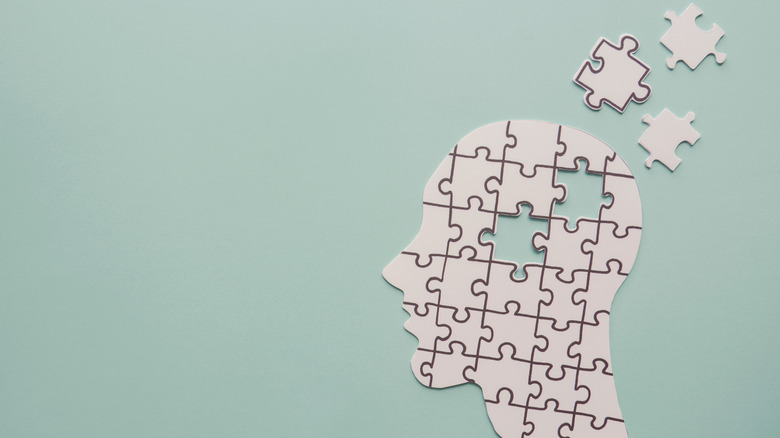Expert On How The Enneagram Can Help You Understand Childhood Wounds - Exclusive
If you're a fan of the Myers Briggs personality test, then you're most likely familiar with the Enneagram. The Enneagram is a personality typing system with roots in spiritual practices and ancient symbology, and its applications include personal growth, relationship-building, and workplace cohesion. Molly Owens is an Enneagram and Myers-Briggs expert and the CEO and founder of Truity, a company that provides research and tests on personality typing.
Owens' background in counseling psychology and therapy informed her ambitions to provide affordable testing to Truity users. Truity not only offers resources on finding your Enneagram type, but it provides testing on the seven love styles, Big Five personality types, career paths, a 16-type Myers-Briggs evaluation, and other free informative tests.
In an exclusive interview with The List, Owens revealed the ways that the Enneagram can be used to understand childhood wounds that may inform our coping strategies as adults.
Patterns established in childhood can influence Enneagram type and adult behavior
In terms of the connection between a person's Enneagram personality type and their early development, Truity's CEO Molly Owens affirmed that informed analysis can provide a deeper understanding of both. "Especially with the ways you had to adapt to an environment that may have not always met your needs," she shared.
Owens clarified the impact of negative early experiences, acknowledging that it takes reflection to gauge their long-term effects. "Most people have some difficult memories from childhood, and these tend to come into sharper focus with knowledge of the Enneagram and understanding how your type can shape your coping strategy," she shared.
The expert backed up this perspective with specific examples from the Enneagram that exhibit this patterning. She explained, "Type Nines, for instance, often cope by denying their own needs even exist, while Type Eights are more likely to cope by becoming the strongest, bravest person in the room." However, Owens went on to give tips on how to retool these types' relationships with their own needs.
It's important to question your coping strategies
Early development impacts how we exist in the world as well as how we interact with others, and it can be a vital part of how we improve relationships through the Enneagram. Truity's CEO Molly Owens confirms that our defenses are a product of our pasts. "The strength of the Enneagram comes — again — in questioning these [coping] strategies," she shared with us.
Owens gives an example for how Type Nine, "The Peacemaker," can reassess their coping behavioral patterns formed by their early experiences. "A Type Nine's work is to realize that they have more power than they think," Owens explained, "and that if they do the work of identifying their needs now, as an adult, they will often be able to manifest what they want."
Truity's information on core wounds poses Type Eight, "The Challenger," as the product of an environment characterized by conflict and a lack of control. Because of this, they likely see exposing vulnerability, or expressing unmet needs, as a sign of weakness. But Type Eight can grow when they work through their deeply held beliefs, and may come to realize that maintaining their tough exterior and seeking confrontation when their needs go unmet will not serve their relationships in the long-run.


